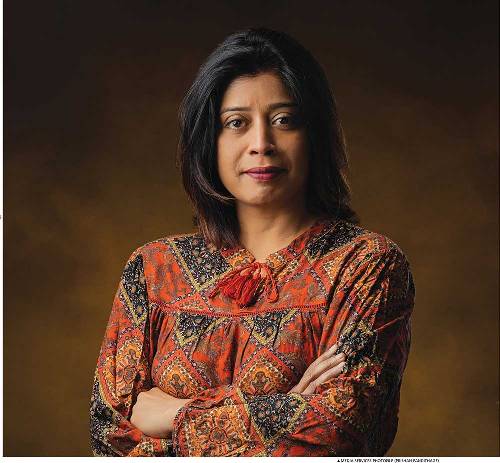UNITED NATIONS, May 23, 2012 (IPS) – Secretary-General Ban Ki-moon, who has invested heavily in the success of the upcoming U.N. Conference on Sustainable Development (UNCSD), is publicly expressing his frustration at the lack of substantial progress on a final plan of action for a greener economy and a sustainable future worldwide.
"I am disappointed with the negotiations. They are not moving fast enough," he complained last week.
The secretary-general, who thinks the summit of world leaders in Brazil next month is a virtual panacea for most of the world's economic and environmental ills, said, "We have an ambitious plan for real progress. But we need agreement on the tough issues."
That agreement, however, remains elusive despite several rounds of closed-door negotiations.
Daniel Mittler, political director of Greenpeace International, who has been closely monitoring the negotiations, told IPS, "We welcome that Ban Ki-moon has put sustainable development at the centre of his second term (in office)."
"We share his disappointment at governments putting polluters first, watering down commitments and getting lost in hundreds of brackets (indicating disagreements) instead of delivering the future we want: a future of zero deforestation, healthy oceans and energy for all delivered by renewable energy and through efficiency."
The secretary-general must continue to make it clear that business as usual is simply not good enough, said Mittler.
Asked how confident he was about a positive outcome document before the summit opens, he said: "So far, what is on the table for Rio+20 is shamefully inadequate."
He said governments have been listening to the polluters not the people.
Mittler specifically accused the United States and Canada of "watering down commitments".
At one session during negotiations, he said, the U.S. government said "we have a problem with the word 'commit'."
"That sums up where we are today – with governments shamefully unwilling to commit and deliver the transformational changes we need," Mittler said.
The UNCSD, which is also known as Rio+20, is a follow-up to the 1992 Earth Summit in Rio which strongly reaffirmed the integration of environment into the U.N.'s development agenda.
After two long sessions of negotiations, a Preparatory Committee (PrepCom), comprising all 193 member states, has remained sharply divided.
Following an inconclusive weeklong meeting last month, the PrepCom will hold another session beginning May 29, with a final three-day session scheduled for mid-June in Brazil just ahead of the summit Jun. 20-22, on the proposed plan of action called the "zero draft".
In characteristic U.N. jargon, the meetings are called "informal informals". The negotiations also covered five regional meetings.
Anticipating another failure next week, the secretary-general said he had told governments to finalise the plan of action titled "The Future We Want" far ahead of the summit.
"We cannot wait until they get to Rio," he said, and summed up the importance of the summit by pointing out that "success will mean light in homes where people live in darkness. It will also mean food for families that are now hungry."
He said the agreement in Rio will protect oceans and improve life in cities. "It will create progress across our planet," he declared.
Ban's spokesperson Martin Nesirky told reporters last week it shouldn't come as a surprise this is a difficult process.
"It is a major and a very important conference, the aims of which are obviously also profoundly important for the whole of humankind," he said.
Therefore, he pointed out, "negotiations in the run-up could be expected to be complex."
Ban said last week that an estimated 70,000 people are expected to participate in the summit, including more than 100 world leaders, and representatives of civil society, the business community, and the international media.
Mittler told IPS that Rio+20 should be about zero deforestation and an energy revolution based on renewables and efficiency – but governments seem set to deliver just business as usual.
However, there is one area where governments can still make a real step forward at Rio+20 – the area of high seas protection, he noted.
Currently, the high seas – over 60 percent of our oceans – are being exploited Wild West-style, and there is no legal way to create protected areas on the high seas, which are not under any particular national jurisdiction.
Many governments, scientists and non-governmental organisations (NGOs) have been pushing for the launch of a High Seas Biodiversity Agreement to be a key outcome of Rio+20.
For the moment, Mittler said, such a launch is still in the negotiation text.
"Whether governments commit to it or not will show clearly who they are listening to – the people or the polluters," he declared.
Post Disclaimer | Support Us
Support Us
The sailanmuslim.com web site entirely supported by individual donors and well wishers. If you regularly visit this site and wish to show your appreciation, or if you wish to see further development of sailanmuslim.com, please donate us
IMPORTANT : All content hosted on sailanmuslim.com is solely for non-commercial purposes and with the permission of original copyright holders. Any other use of the hosted content, such as for financial gain, requires express approval from the copyright owners.
 Sri lanka Muslims Web Portal Sri Lanka Muslims News Center
Sri lanka Muslims Web Portal Sri Lanka Muslims News Center




